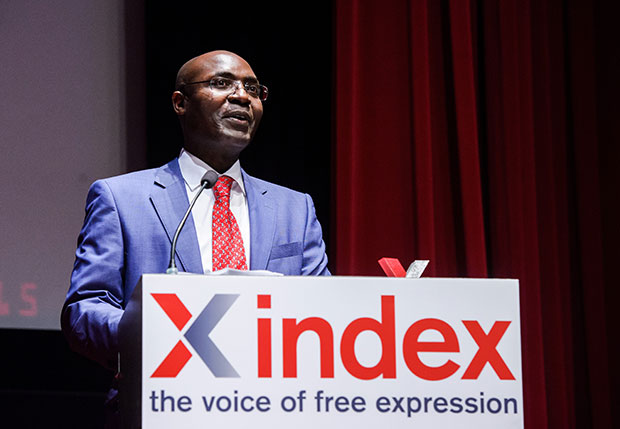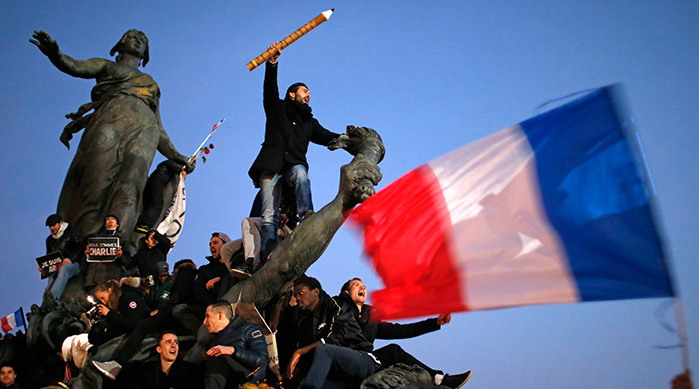4 Jun 2015 | Europe and Central Asia, Ireland, mobile, News
“Where would we be in Ireland if four million people had to make public all their banking relationships?” tycoon Denis O’Brien asked in an Irish Times opinion piece last week. It is a more interesting question than I suspect O’Brien meant it to be. The Irish economy suffered heavily from the nods, winks, strokes carried on behind closed doors throughout the 90s and 2000s, and perhaps a little more transparency, a touch more daylight shed on banking matters, would have been for the good.
O’Brien, owner of a large central plain of Ireland’s media landscape, was writing for one of the newspapers he didn’t own amidst a controversy surrounding his own private banking relationships, specifically his relationship with the state-owned Irish Bank Resolution Corporation (IBRC).
Independent TD Catherine Murphy had made allegations in the parliamentary chamber regarding the interest rate Mr O’Brien had been given on a €500m loan from IBRC. The loan related to the purchase of Siteserv, a major recycling firm.
O’Brien, on learning about Murphy’s remarks, apparently while breakfasting in Haiti, was incensed by what he saw as a blatant breach of privacy, and immediately instructed his lawyers to seek an injunction on the reporting of the Dáil speech, which they duly won. “It was one of those nanosecond decisions,” O’Brien wrote, in an article brimming with indignation. Those who criticised the injunction were engaged in nothing less that a witch hunt: “I have never experienced the level of abuse, venom and hatred resulting from taking a stand to protect privacy in relation to my financial affairs.” He then signed off, oddly: “I will always be proud to be Irish, optimistic and a republican with a small ‘r’.” Good to know, Denis.
Actually, that last statement is worth looking at: in spite of it all, in spite of all the slings and arrows, in spite of the insufferability of this stupid, petty, greasy-till fumbling little country, O’Brien will not abandon Ireland. He is proud, he is optimistic, he is a republican, but not too republican. We are lucky to have him.
This language was echoed by his spokesman James Morrissey, who told RTE’s Keelin Shanley that, frankly we were lucky to have O’Brien. “I think it’s important to mention, and it would be a celebratory fact if it was an IDA-backed [state-assisted] company, but Denis O’Brien employs in and around 10,000 people both directly and indirectly in this country and he’s entitled to invest and he’s entitled to have his leading bid for a company accepted.”
In Ireland, you see, wealth and employment are articles of faith, and they should not be questioned lest they melt into air.
I am not even going to attempt to get into the exact details of O’Brien’s finances. The injunction on reporting was “clarified” earlier this week, and as a result, you can now read articles such as this one on The Journal, which was removed after the injunction was initially granted, reporting on Murphy’s speech.
No, these are not the business pages and others will report on the ins and outs better than I. What concerns us here are two factors: parliamentary privilege, and the public interest.
First of all, parliamentary privilege: that is, the right to speak without hindrance in parliament, and the right for the press to report what is said in parliament.
While O’Brien’s spokesman Morrissey may have dismissed the Dáil as a “talking club”, it’s absolutely crucial to a democracy that elected representatives can make their representations fearlessly. Lord knows it doesn’t happen enough, but we should be encouraging it.
Almost six years ago in Britain, in an important moment for the free press, democracy and justice, The Guardian took on metals and energy company Trafigura when it attempted to stifle reporting of an internal document on a waste spill. On that occasion, Carter-Ruck attempted to stop the papers from reporting a parliamentary question from Paul Farrelly MP on the issue. Trafigura and its lawyers backed down on their injunction just hours before The Guardian was due to appeal. It was an important moment, not just in upholding the principle of parliamentary privilege, but also in proving its worth (it should be noted that some idiotic things can also be done under the mantle of parliamentary privilege, but the good rather outweighs the bad).
Returning to present-day Ireland, here’s the transcript where O’Brien’s spokesman called the nation’s parliament a “talking club”:
Shanley: [W]hat relevance is it how many people [O’ Brien] employs in this country? I mean we’re talking here about press freedom. We’re talking about somebody with huge power, who owns half of the media and is preventing the other half from reporting…”
Morrissey: “No I think you’re missing my point. I was just saying when [opposition parliamentarian] Billy Kelleher talks about powerful people. A powerful person has the same rights as a person who’s not powerful and that is a democratic right to their good name and reputation and not to have it sullied in the Dáil. And I think, to be brutally blunt about it, the Dáil is a bit of a talking club. They want their own rules for themselves and I think, to be fair, it’s important that people stand up for democracy inside the Dáil, as well as outside the Dáil because that’s the basis on which they get elected.”
Note here that democracy is whatever you want it to be at that particular time: and the things you do not want can be undemocratic. Note the spokesman for the nation’s wealthiest person making an appeal to the common man against the political class. O’Brien, his spokesman is saying, is an ordinary man with the same rights as the rest of us.
But here’s the question of public interest: is he? Clearly, he has more money than us. And because of that, he has more influence than us. O’Brien, he of the 10,000 jobs, is very, very important. There is, it would appear to me, an obvious difference between him getting a €500m loan from a state bank, and you or I getting a €50,000 small business loan. O’Brien cannot be in the same breath this great important job creator and media mogul, and just a humble man who can enjoy absolute privacy.
The price, perhaps of the privilege O’Brien enjoys with his fortune is our privilege to know what he’s doing with it.
This column was posted on 4 June 2015 at indexoncensorship.org
2 Jun 2015 | Africa, Angola, mobile, News, Statements

Journalist and human rights activist Rafael Marques de Morais (Photo: Alex Brenner for Index on Censorship)
International signatories from the worlds of technology, journalism, publishing, theatre, film and business, including jewellers Tiffany & Co, called on Angolan president José Eduardo dos Santos on Tuesday to drop the prosecution of award-winning investigative journalist Rafael Marques de Morais.
Marques was last week given a six-month suspended sentence following a trial in which he faced criminal defamation charges over his 2011 book on blood diamonds, which was published for the first time in English on Tuesday.
“Rafael’s trial was a sham. He was told charges would be dropped, only for him to be hit with new charges out of the blue, and he was not allowed to present his evidence or call witnesses,” said Jodie Ginsberg, CEO of freedom of expression group Index on Censorship, which organised the letter.
“Rafael is a courageous journalist, working with little support to expose corruption in Angola. This absurd trial and verdict is meant to stop him from speaking out. We want to make sure that does not happen.”
Marques was awarded an Index on Censorship Freedom of Expression award in March for his work. Signatories to the letter include jewellers Tiffany & Co.; tech entrepreneurs Martha Lane Fox, one of the judges of the awards, and Wikipedia founder Jimmy Wales; authors Philip Pullman, Neil Gaiman and Elif Shafak; actors Janet Suzman, Juliet Stevenson, and Simon Callow; playwrights Howard Brenton and Timberlake Wertenbaker; as well as Steve McQueen, director of Oscar-winning film 12 Years a Slave. Other signatories included journalists Sir Harold Evans and Christina Lamb; and artists and writers with direct experience of censorship, such as Syrian political cartoonist Ali Ferzat and Azerbaijani journalist Idrak Abbasov.
The letter will be delivered by Index on Censorship to the Embassy of Angola in London on Tuesday, June 2.
For more information, contact David Heinemann on 0207 260 2664 or email [email protected].
The letter
We, the undersigned, call on Angolan President José Eduardo dos Santos to drop the prosecution of journalist Rafael Marques de Morais.
Marques’ vital investigations into human rights abuses should not be impeded by the threat of jail, which is set to loom over him for two years under the court’s terms.
His conviction and six-month suspended sentence are a clear violation of the rights to free expression, to a free press and to a fair trial.
Marques’ reporting is fundamental not only to Angola, but to the world at large.
We call on you to ensure standards of international law are applied during the appeal process.
Yours faithfully,
Ali Ferzat, cartoonist
Angela Quintal, editor, Mail & Guardian, South Africa
Dame Ann Leslie, journalist
Anthony Barling, lawyer
Art Kaufman, World Movement for Democracy
Bob Fu, founder and president, ChinaAid
Brilliant Earth Jewellery
Carl Gershman, president, National Endowment for Democracy
Chantal Uwimana, Transparency International
Chie Murakami, director general, Diamonds for Peace, Japan
Christopher Hird, film producer
Christophe Deloire, secretary-general, Reporters Without Borders
Christina Lamb OBE, journalist
David Aaronovitch, columnist
David Harewood MBE, actor
David McCune, publisher
David Schlesinger, founder, Tripod Advisors
Dreda Say Mitchell, author
Edward Fitzgerald CBE QC, lawyer
Elaine Potter, journalist
Elif Shafak, author
Geoffrey Hosking OBE, historian
Grigory Pasko, journalist
Sir Harold Evans, journalist
Howard Brenton, playwright
Idrak Abbasov, journalist
Janet Suzman, actor and director
Jesper Højberg, executive director, International Media Support
Jeffrey Smith, Robert F Kennedy Centre for Justice & Human Rights
Jimmy Wales, founder, Wikipedia
Jodie Ginsberg, chief executive, Index on Censorship
John Witherow, editor, The Times, UK
Juliet Stevenson, actor
Kamila Shamsie, author
Kostas Vaxevanis, journalist
Lara Pawson, author of In the Name of the People: Angola’s Forgotten Massacre
Larry Kilman, secretary-general, World Association of Newspapers and News Publishers
Leber Jeweler Inc
Lee Hirsch, film director
Lindsey Hilsum, journalist
Louise Redvers, journalist
Mariane Pearl, journalist
Mark Stephens CBE, senior member, Howard Kennedy LLP
Martha Lane Fox CBE, House of Lords
Mary Lawlor, executive director, Front Line Defenders
Maya Wolfe-Robinson, journalist
Matthew d’Ancona, journalist
Matthew Parris, journalist
Mohamed Al-Dharadji, film director
Neil Gaiman, author
Paul Webster, film producer
Peter Oborne, journalist
Peter Kellner, president, YouGov
Peter Pomerantsev, author
Peter Tatchell, director, Peter Tatchell Foundation
Philip Pullman, author
Rahim Haciyev, editor, Azadliq, Azerbaijan
Richard Sambrook, director, Centre for Journalism, Cardiff University
Ronald Deibert, academic
Robert McCrum, writer and editor
Sanar Yurdatapan, Initiative for Freedom of Expression, Turkey
Shubhranshu Choudhary, journalist
Simon Callow CBE, actor
Steve McQueen CBE, film director
Sue Woodford-Hollick OBE, businesswoman
Sue Valentine, Committee to Protect Journalists Africa Programme
Suzanne Nossel, executive director, PEN American Centre
Stephen Hull, editor-in-chief, Huffington Post UK
Thomas Hughes, executive director, Article 19
Tiffany & Co.
Timberlake Wertenbaker, playwright
Turi Munthe, founder, Demotix
Yoav Shamir, filmmaker
Ziyad Marar, publisher



